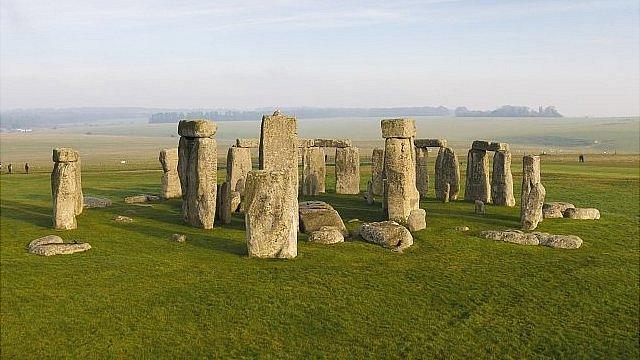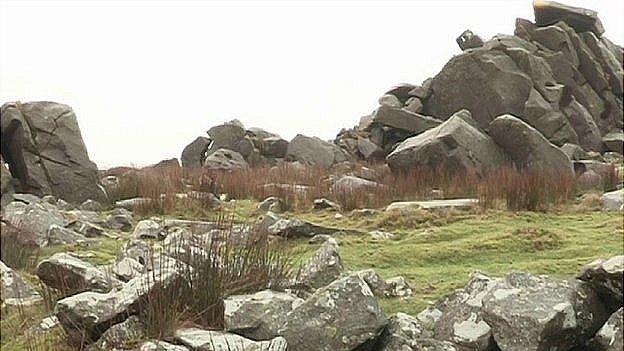Stonehenge bluestones had acoustic properties, study shows
- Published

A study has discovered that rocks in the Preseli Hills, the source of some the stones at Stonehenge, have a sonic property
The giant bluestones of Stonehenge may have been chosen because of their acoustic properties, claim researchers.
A study shows rocks in the Preseli Hills, the Pembrokeshire source of part of the monument, have a sonic property.
Researcher Paul Devereux said: "It hasn't been considered until now that sound might have been a factor."
The study, by London's Royal College of Art, was to try and record what "Stone Age eyes and ears" would have heard and seen in a prehistoric landscape.
Since the 1920s, it has been known stones quarried in Mynydd Preseli were hauled 199 miles (320 km) to Wiltshire by its makers. But, trying to establish why has been more difficult.
'Like a bell'
With this study, thousands of stones along the Carn Menyn ridge were tested and a high proportion of them were found to "ring" when they were struck.
"The percentage of the rocks on the Carn Menyn ridge are ringing rocks, they ring just like a bell," said Mr Devereux, the principal investigator on the Landscape and Perception Project.
"And there's lots of different tones, you could play a tune.
"In fact, we have had percussionists who have played proper percussion pieces off the rocks."

Thousands of stones along the Carn Menyn ridge were tested and a high proportion were found to "ring" when struck
According to Mr Devereux, the discovery of the "resonant rocks" could explain why they were selected for Stonehenge.
"There had to be something special about these rocks," he said.
"Why else would they take them from here all the way to Stonehenge?"
'Pre-historic glockenspiel'
Built between 3,000 BC and 1,600 BC, it has remained a mystery why the monument's bluestones were lugged all the way from north Pembrokeshire.
But Prof Tim Darvill, who has undertaken hundreds of excavations at Stonehenge, insists "pre-historic attitudes to stone" must have been very different to those of today.
"We don't know of course that they moved them because they rang but ringing rocks are a prominent part of many cultures," he said.
"You can almost see them as a pre-historic glockenspiel, if you like and you could knock them and hear these tunes.
"And soundscapes of pre-history are something we're really just beginning to explore."
Inside Out is on BBC1 at 19:30 GMT on Monday.
- Published19 November 2013
- Published22 June 2012
- Published19 December 2011
- Published22 February 2011
- Published9 February 2011